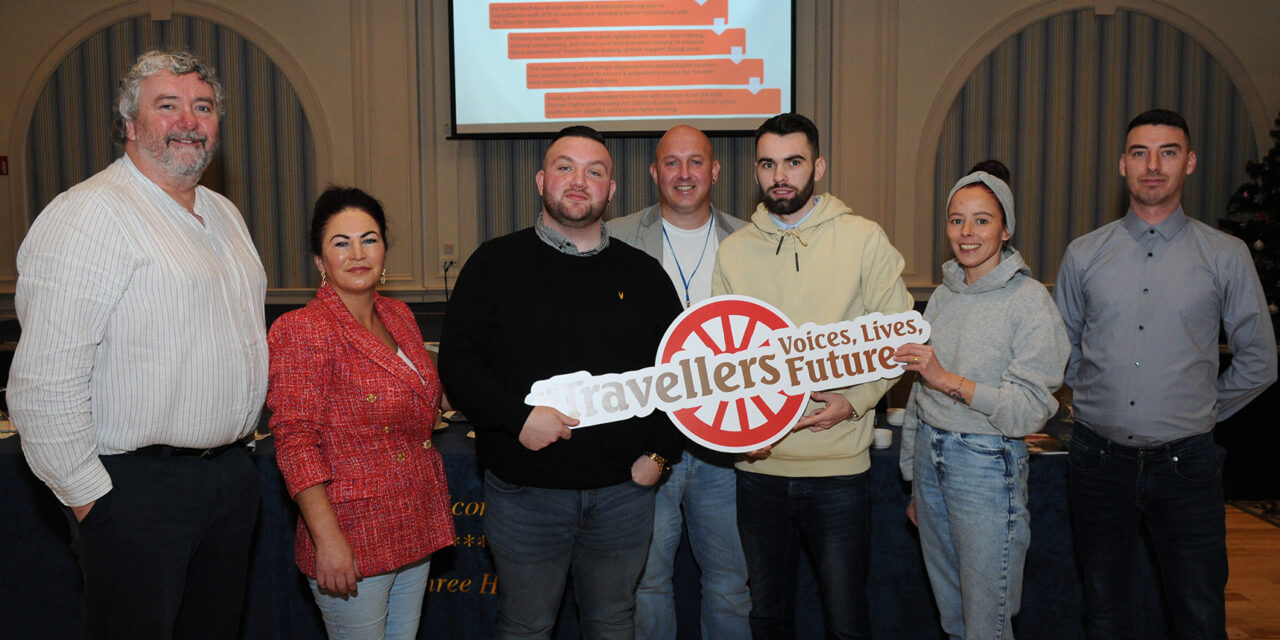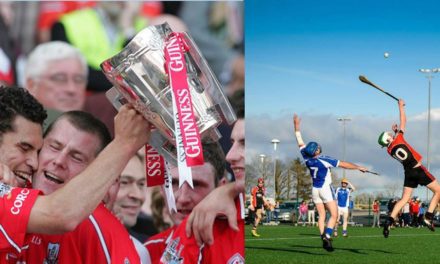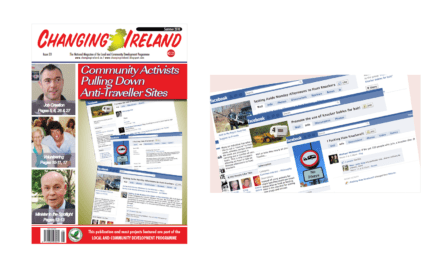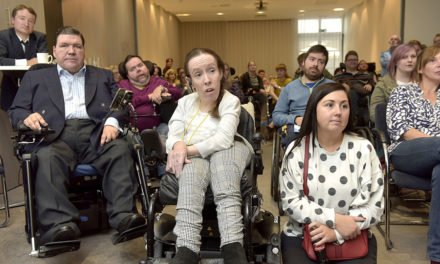“I can’t go to any bar. They hear my accent, look at my appearance and they think I’m violent, it’s that negative stereotype,” – Martin Mongan, Donegal Travellers Project
A major study of Travellers’ lives in Dublin published in mid-February pointed to racism and discrimination for directly leading to many Traveller suicides. Research among a smaller group, focused specifically on Traveller men’s mental health, came to the same conclusion. This study was launched in December in Donegal and it marked the first time that Travellers themselves conducted all the research.
Facilitated by David Friel, the first Traveller in the North West to be educated to Masters level, the research paints a picture of the daily lives of 12 Traveller men living in Donegal.
The report, entitled Our Lives Our Voices Our Future, makes for sobering reading. Of the 12 men who agreed to be interviewed for the study, seven had experienced suicidal ideation, or had attempted suicide in the past.
All 12 reported having negative experiences with members of An Garda Síochána, including being subjected to racial slurs, and random searches. Unemployment, poverty, poor housing conditions, and negative experiences in the education system were also common themes.
Donegal Travellers Project (DTP) has been running since 1996; it delivers projects and workshops in a number of areas, including Traveller accommodation, men’s health, women’s health, employment, as well as an education project, a preschool, and afterschool support. DTP also operates a Roma project, which began in 2016.
Martin Mongan, a community worker with DTP who was part of the research team, spoke to Changing Ireland about the ground-breaking report.
“When it (DTP) was originally established, nearly all of the staff were from the settled community. Now about 70 to 80 per cent of the staff are Travellers; a lot of them came up through the literacy project and different educational projects. We also have one Roma staff member.
“I left school at 12, then I came back to education through the Donegal Travellers Project youth programme. Most of the staff would have left school early, and without the project we probably wouldn’t be in employment.
“It’s unique in that it’s Traveller research by Travellers. The participants are Travellers from all around Donegal. There are men from the LGBT community, men who are in prison, or homeless. Some are employed, but most of them are unemployed. They were from different age groups, from about 18 to 60 years old, so it was a very diverse group from all walks of life. It’s the first piece of research like it in Ireland.
The questions covered employment, accommodation, engagement with the guards and mental health.
“All of the men had similar experiences. Mental health was a major factor for all the men, as well as the lack of adequate and suitable accommodation,” said Martin.
“One of the families had 10-12 people living in a three-bedroom house. There were issues with overcrowding, damp, and poor heating. Others were living on the roadside in a caravan.”
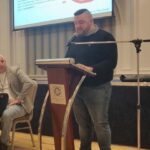
• David Friel, PhD candidate and the first Traveller in the North West to achieve a Masters.
School stories
Martin says the contributing factors to mental health difficulties were consistent among all the men, beginning with negative experiences in educational settings, followed by a struggle to gain employment in adulthood, which results in poverty and being forced to live in poor quality accommodation.
“Lots of Travellers leave school at a young age, due to segregation and low expectations. Even when they might have the training for a job, when they have the skills, once they (the employer) hear your name, or where you live, you might not even get an interview.
“It was like this 23 years ago, and it’s still like that today. It hasn’t changed a whole lot. Little bits and pieces have improved but not much.
“If you don’t have access to decent accommodation, your life expectancy is lower. If you don’t have employment, you can’t better your circumstances.
“If you have employment, you can get better housing. You’ll have better health, you have access to better food and you can take better care of yourself. Your mental health is better, you’ve got a daily routine, you’re talking to your colleagues.
What helps
Regarding integration, Martin says it has improved in some areas of Donegal “due to Travellers being housed in housing estates among the settled communities”. However, it seems like society still has a way to go.
He said: “I can’t go to any bar. They hear my accent, look at my appearance and they think I’m violent, it’s that negative stereotype. Even things like looking to hire a digger to do some work can be difficult. Companies won’t hire to you. All of that has consequences for your mental health and eventually you crack.”
He talked of Traveller men living miles from the nearest town in poor accommodation and having “no engagement with anyone outside their own community.”
It would help if there was more integration and greater engagement between the settled and Traveller communities, as well as more cultural awareness among service providers.
Finding work
Martin said more employers need to be willing to give people a chance: “Travellers do want to work, but we can’t get employment.”
He welcomed the fact that some local employers in Donegal give jobs to young Travellers.
“If you don’t give someone a chance, you won’t know if they’re good or not. Society needs to be more open to giving people a chance.”
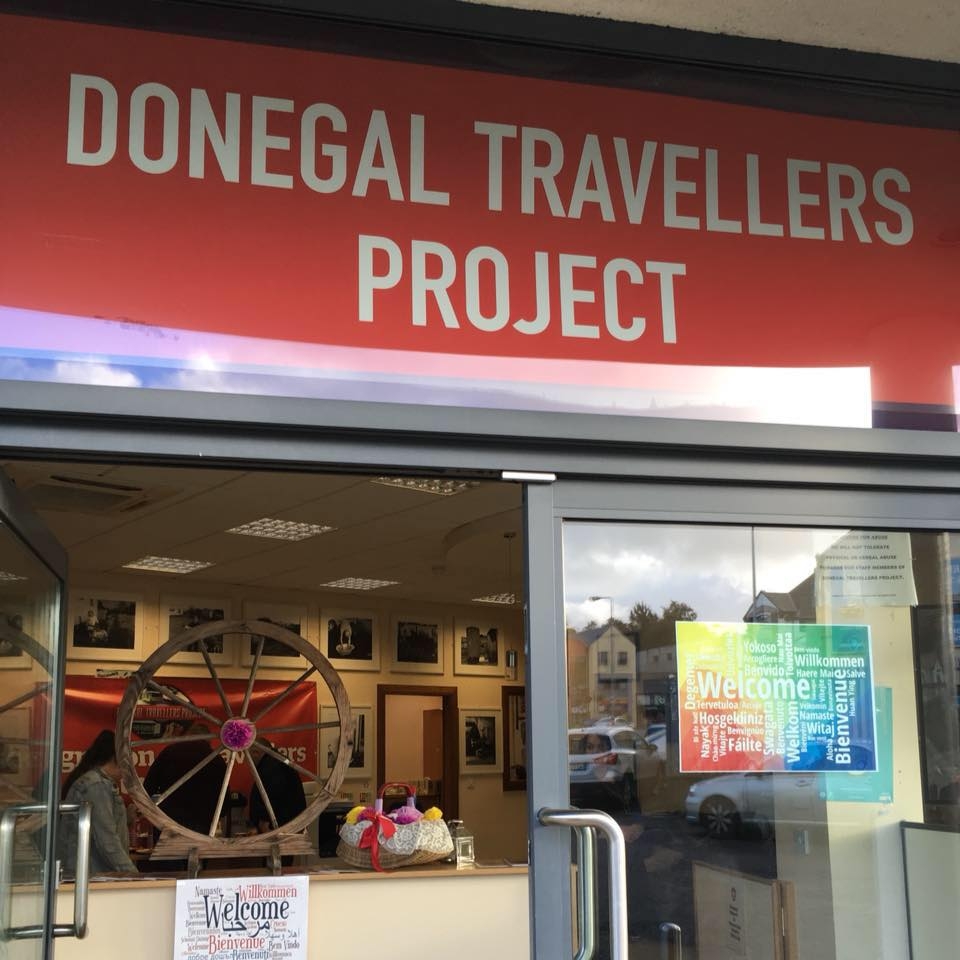
Suicide rate
“The suicide rate among Traveller men is seven times higher than the general population. If you’re being told all your life that you’re not wanted, if you can’t get employment, it can lead you down a bad route where you feel like you’ve nothing to live for. In some parts of the country, like Limerick and Cork, we’ve heard of children as young as 11 and 12 taking their own lives.”
The life expectancy for Traveller men is 15 years less than in the general population and unemployment rates are at about 80%.
Stigma
As was highlighted in previous studies, there is a stigma in talking about mental health and especially so among Traveller men. This challenge is compounded for Traveller men who are gay.
The report also cites previous research, which stated that 90% of Irish Travellers live in insufficient and inadequate accommodation. A common theme from the interview data was the connection between substandard accommodation, homelessness and Traveller men’s mental health.
The research was carried out in conjunction with Connecting for Life Donegal, the National Traveller Partnership, and the Traveller Men’s Advisory Group.
To get a copy of the report, or to contact the author, email: travcomdtp@gmail.com or
david.friel@mail.itsligo.ie

Factors that the research found increased the risk of mental health difficulties among Traveller men
- Severe accommodation deprivation and homelessness was correlated with Traveller men’s experiences of poor mental health, with anxiety, stress, low self-esteem and self-worth being self-reported by Traveller men as a result.
- Traveller men’s early childhood experiences of racism, segregation and low expectations in the school setting are internalised, having a deep-rooted and long-term impact on their mental health.
- Unemployment and subsequent poverty.
- Traveller men self-reported having either fair or poor physical health. Contributing factors were accommodation deprivation, poverty, racism and discrimination from health/fitness establishments.
- Extensive research indicates that Irish Travellers have a higher death rate than the general population in Ireland. Traveller men reported increased incidences of family bereavements (from suicide or sudden death) impacted on their mental health.
- Increased experiences of bereavement coupled with precarious life circumstances and social exclusion led Traveller men to utilise drugs and/or alcohol.
- Lack of access and inadequate experiences of mental health support. Most Traveller men reported having negative experiences with their GP and mental health services.
- Racial/ethnic policing from the gardaí. Experiences of being subject to racial slurs, wrongful convictions and involuntary interactions were identified as chronic stressors.
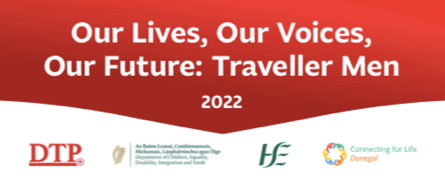
Possible solutions for the issues faced by Traveller men were suggested by the participants included:
- End racism in all its forms
- Increased employment opportunities, particularly apprenticeships.
- An LGBTQ+ support group or worker to be situated within Donegal Travellers Project (DTP)
- More physical sports and social gatherings for Traveller men
- Review existing local authority policies to take account of the nature of Traveller homelessness and accommodation deprivation
- Training and workshops for local authorities on interculturalism, anti-racism and the specific needs of Travellers experiencing accommodation deprivation and homelessness.
- Educators at all levels should undertake anti-racism, anti-discrimination and cultural competence training.
- Targeted training initiatives for Traveller men that capture their interests while meeting the needs of employers within the region.
- Governmental policy to address the high unemployment rate among Traveller men.
- Focus on Traveller men’s physical health through targeted initiatives that capture their interests.
- A health awareness campaign on the impact of mental health on physical health and vice versa.
- Culturally appropriate counselling services.
- Cultural competency, anti-racism and discrimination training for primary care teams to improve the experiences of Traveller men availing of their support during crises.
- The development of a Traveller Mental Health Response Team within the local area.
- The development of a National Traveller Mental Health Strategy.
- Educational anti-stigma interventions with Traveller men with a specific emphasis on mental health literacy, and sexuality to address the stigma attached to both in the community
- Create consciousness among Traveller men about their human rights and legislation to empower them to report racism/discrimination.
- An Garda Síochána should establish a dedicated policing plan to improve and develop a better relationship with the Traveller community.
- Diversity, anti-racism and cultural competency training for all departments of An Garda Síochána

